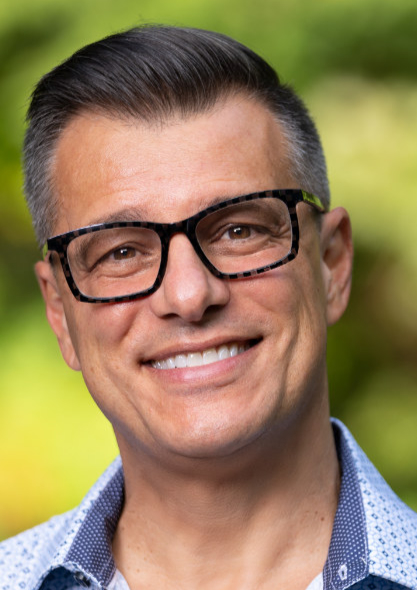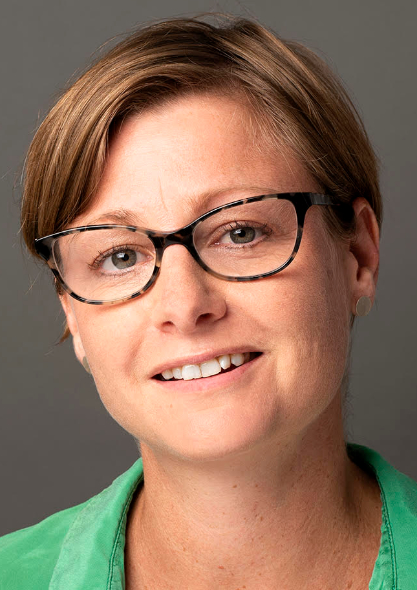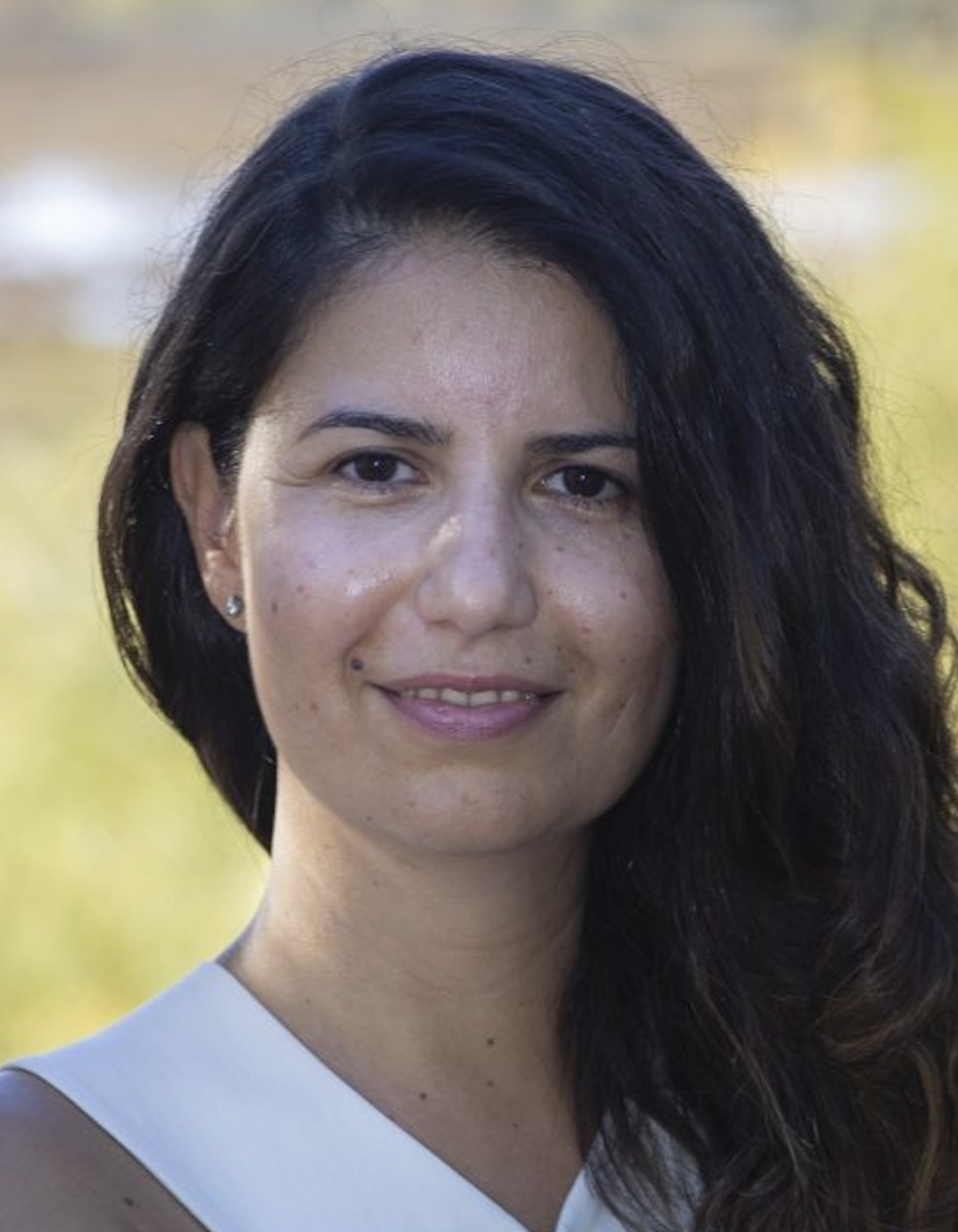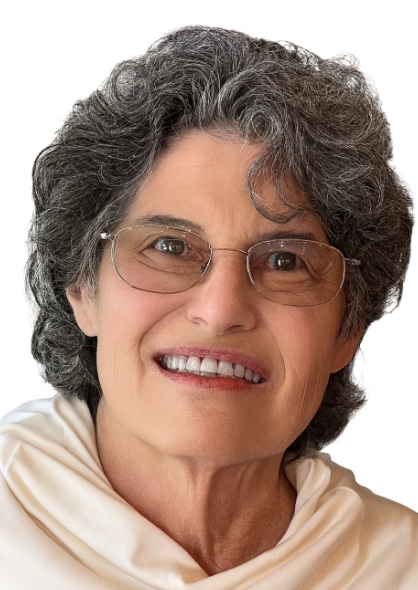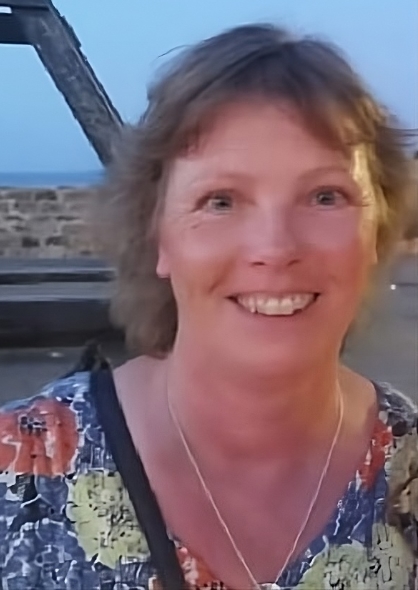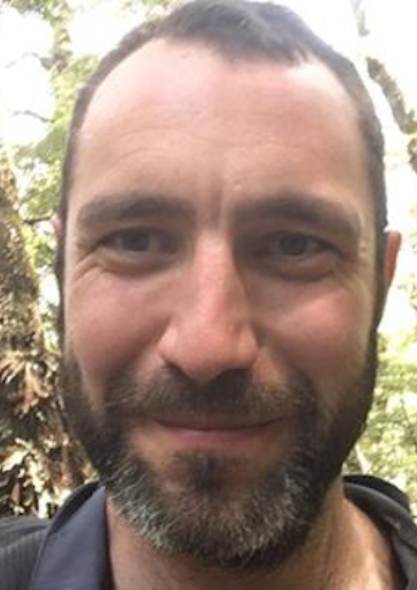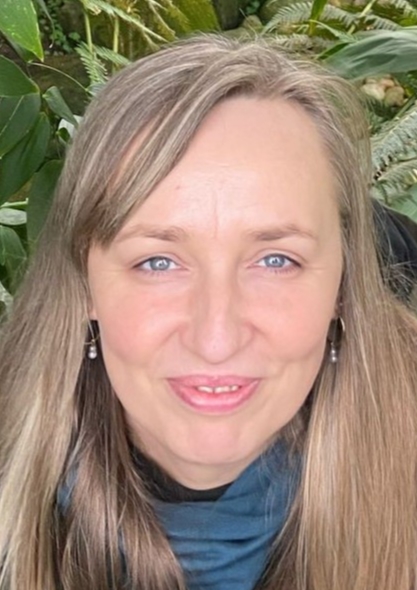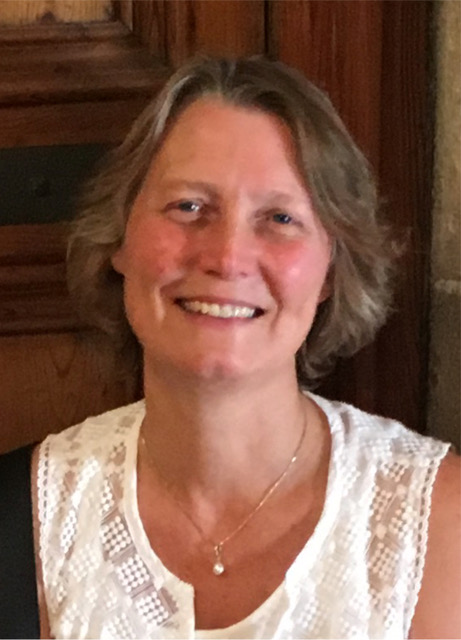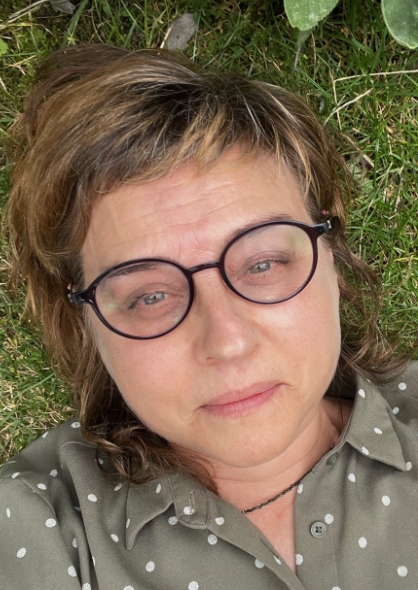
Integrating Somatic Techniques in Therapy
We’ve started, and you’re still welcome to join.
11 Teachers
13 Workshops
Practice Facilitators
55 Hours in Total
Live + Recording
Training Manual
$371 Bonus Pack
EXPERIENTIAL ACTIVITIES:
13 Guided Somatic Explorations
13 Practice Circles
Demo Sessions
Q&A Sessions
Case Consultations


Bringing the body into the therapy
Being aware of the importance of bringing the body into the therapy process, you may have asked yourself these questions:
How to effectively introduce somatic techniques into your therapy room (regardless of the modality you use)?
How to invite clients to experience somatic interventions (especially those, who are hesitant to try new things)?
How to effectively use somatic techniques while working online?
How to choose the right somatic tools for specific issues?


We have prepared a 3-month (55 hours) online training with
some of the leading minds in the field of somatic therapy to provide detailed answers to these questions.
🚀 Start Anytime and Catch Up with Ease
It’s never too late to join the 3-month online training! Even if you sign up after the training has already started, you’ll receive full access to all Workshop and Guided Somatic Exploration recordings from this edition — so you can catch up at your own pace and stay aligned with the group.
Please note that Practice Circles are not recorded. Access to past circles is not available, and participation in live Practice Circles after October 1 will be possible only upon request and if space is available in the groups.You can still apply for CE hours for attending live workshops. Simply let us know and submit the $50 administrative fee to receive your credits.
About our 3-Month Somatic Therapy Training


Training in a nutshell
The program spans a total of 55 hours, including 13 sessions, each lasting 3.5 hours. It also features 4 hours of pre-recorded videos and 6 hours dedicated to case consultation studies (in 2026).
World-class faculty
Frank Anderson, Deb Dana, Bessel van Der Kolk, Sharon Stanley, Linda Thai, Peter Levine, Cathy Malchiodi, Alexia Rothman, Jacqueline Compton, Giten Tonkov, Tracy Jarvis
13 Experiential Workshops
with hands-on learning, demonstrations, Q&A, group work and sharing.
13 Practice Circles
meetings for guided experientials, student connection, and support from Practice Facilitators.
A carefully curated selection of techniques
from leading modalities like Polyvagal Theory, Sensorimotor Psychotherapy, Somatic Experiencing, Internal Family Systems, Expressive Arts Therapy and Breathwork.
13 Guided Somatic Explorations
to move, open up to your body and create a deep relationship with it.
A Certificate of Completion
after completing the training for all participants.

By attending this training, you will:
- Acquire a set of somatic skills and tools, learn how and when to use them, and how to integrate them into a therapy session regardless of your primary therapy modality.
- Gain confidence in explaining and introducing somatic work, even to clients who are hesitant and skeptical (along with a list of strategies for dealing with client objections to somatic techniques).
- Learn how to safely use somatic techniques both in-person and online.
- Experience somatic explorations on your own, allowing you to connect with your body and truly embody the somatic approach to psychotherapy.
- Support your clients in recognizing and processing trauma that has been stored in the body.
- Connect with like-minded mental health professionals in a safe space for practice, sharing, Q&A, and networking.
- Save time researching various somatic tools and be introduced to ones that are known to be effective, useful, and easy to integrate into your practice.
Program Structure
The program spans a total of 55 hours, including 13 sessions, each lasting 3.5 hours. It also features 4 hours of pre-recorded videos and 6 hours dedicated to case consultation studies (in 2026).
13 Live Sessions
3.5 hours each
Case Consultation Calls
6 hours
Prerecorded Videos
4 hours
55 hours in Total
Session Structure
Workshops
1 hour 55 minutes
Short Break
15 minutes
Guided Somatic Explorations
30 minutes
Practice Circles
50 minutes
Each session kicks off with an engaging two-hour workshop. Afterward, you’ll have a chance to reconnect with your body during a guided somatic exploration. Following a brief ten-minute break, join our practice circle to collaborate and deepen your skills in small, facilitator-supported groups.
All Workshops and Guided Somatic Explorations are taking place live and will be recorded.


During this 3-month training, we will meet once a week on Tuesday.

Meet the teachers who will lead the training
Workshop Schedule
This opening workshop sets the stage for the entire training, introducing the core principles of somatic psychotherapy through the lens of Tracy Jarvis’s personal journey and clinical experience. You’ll receive a clear overview of the program’s structure, the intention behind each module, and how diverse faculty perspectives will enrich your learning. We’ll explore the range of somatic techniques you’ll encounter throughout the training—emphasizing flexibility, consent, and choice in experiential activities—and introduce foundational concepts such as the bottom-up approach, various types of somatic therapy, and how body-based work compares to traditional talk therapy. The session concludes with a preview of upcoming workshops to help you orient yourself in the learning process.
How This Workshop Will Support Your Practice:
- Provides a clear roadmap of the training and how each module supports your development.
- Helps you begin integrating body-based awareness into your therapeutic lens.
- Clarifies the distinctions and advantages of somatic therapy compared to talk therapy.
- Introduces safety-oriented, flexible ways to explore somatic techniques with clients.
- Prepares you to recognize and apply a variety of somatic tools based on client needs.
This workshop offers a foundational exploration of how trauma lives in the body and why somatic approaches are essential to healing it. You’ll be introduced to key trauma theories and concepts we’ll revisit throughout the training, including how trauma is stored as non-verbal memory, the role of the autonomic nervous system, and the contrasts between top-down (talk therapy) and bottom-up (somatic) approaches. We’ll explore attachment trauma, the window of tolerance, neuroplasticity, and the triune brain model, while also integrating different therapeutic models to build a comprehensive view. Through guided pauses, participants will be invited to notice their own responses as they learn, and two live mini-demos will offer a felt sense of working with bodily sensation. The session also emphasizes empathy, compassion, and the importance of normalizing trauma responses—what may seem irrational often has deep physiological roots.
How This Workshop Will Support Your Practice:
- Equips you with a somatic understanding of how trauma is stored and processed in the body.
- Deepens your ability to recognize and work with pre-verbal and non-verbal trauma material.
- Clarifies the limitations of talk therapy alone and the value of integrating somatic approaches.
- Introduces practical tools like tracking sensation and using the window of tolerance in session.
- Builds your confidence in normalizing trauma responses and fostering client self-compassion.
In this workshop, Dr. Sharon Stanley introduces a method of relational body-centered psychotherapy that assists individuals and communities restore the flow of healthy growth and development following relational and multigenerational trauma. Drawing on neuroscience, phenomenology and ancient wisdom, learners will explore how somatic practices, such as embodiment, awareness, inquiry, empathy and reflection on lived experience can support healing, emotional regulation and empathic connectivity. Experiential learning in this section emphasizes somatic meditation, somatic empathy and somatic reflection.
After attending this session, you will be able to:
- Explain the impact of individual and collective trauma on the body, psyche and social relationships.
- Demonstrate somatic practices of meditation, empathy and reflection.
- Apply somatic inquiry methods to explore lived experience.
- Practice somatic reflection through journaling and group dialogue.
This workshop brings somatic therapy into practical focus, exploring how to skillfully apply body-based tools in trauma work. You’ll examine the distinctions between traditional phase-oriented trauma treatment and its somatic counterpart, and gain insight into how to assess and prepare clients for somatic work. Special attention is given to clients who are disconnected from their bodies or not yet ready for somatic engagement, and how to introduce mindfulness, present-moment awareness, and trauma symptom tracking in a safe, gradual way. The session also covers concrete somatic techniques to support nervous system regulation, culminating in a live demonstration to show how these tools come to life in clinical practice.
How This Workshop Will Support Your Practice:
- Helps you assess client readiness for somatic trauma work and adapt your approach accordingly.
- Provides strategies for introducing mindfulness and present-moment awareness to trauma survivors.
- Offers practical somatic techniques for regulating the nervous system in-session.
- Clarifies the differences between general and somatic phase-oriented trauma treatment.
- Builds your confidence in integrating somatic tools safely and effectively in the therapy room.
In this special two-part session, you’ll witness a dynamic dialogue between a leading voice in somatic psychotherapy—Peter Levine and Sharon Stanley—followed by a live experiential segment. The workshop focuses on core elements of trauma-informed somatic work, including an introduction to the autonomic nervous system (ANS), the principles of neuroplasticity, and a demonstration centered on energetic boundaries. This session offers both theoretical depth and embodied insight, highlighting how foundational somatic concepts translate into practical therapeutic tools.
How This Workshop Will Support Your Practice:
- Deepens your understanding of the ANS and its role in trauma and regulation.
- Introduces the concept of energetic boundaries through a live demonstration.
- Enhances your ability to explain and apply neuroplasticity in therapeutic work.
- Offers unique insights from two experts in somatic psychotherapy.
- Strengthens your capacity to integrate somatic awareness into relational presence.
This workshop brings Polyvagal Theory to life with a practical focus on how understanding the nervous system can transform therapeutic presence and outcomes. Deb Dana introduces the theory’s core principles—including its emphasis on the nervous system’s role in shaping emotions, trauma responses, and relational dynamics—alongside a clear overview of autonomic states. You’ll learn how to help clients create personal anchors (relationships or memories that offer a felt sense of safety) and touchstones (physical cues that support self-regulation). The session highlights how therapists can recognize and respond to clients’ physiological states to deepen connection and effectiveness, and includes a live demo and Q&A to support direct application in your practice.
How This Workshop Will Support Your Practice:
- Deepens your understanding of nervous system states and their influence on trauma and connection.
- Introduces practical tools like anchors and touchstones to support client regulation.
- Equips you to apply Polyvagal Theory to strengthen therapeutic attunement and safety.
- Demonstrates real-time application of theory through a live demo.
- Provides direct access to one of the leading voices in applied Polyvagal Theory.
This workshop bridges Internal Family Systems (IFS) with Polyvagal Theory to offer a deeply integrative, somatically attuned approach to working with parts. You’ll explore how polyvagal-informed IFS therapy supports healing by aligning the concept of Self and parts with nervous system states—clarifying how fight, flight, freeze, and collapse responses influence internal dynamics. Special attention is given to working somatically with preverbal and nonverbal parts, using the body’s cues to detect and connect with wounded or burdened parts. You’ll gain practical techniques for helping clients safely witness and integrate these parts while building neural pathways for safety, connection, and resilience. This approach supports both psychological integration and nervous system regulation, expanding your therapeutic range when working with trauma.
How This Workshop Will Support Your Practice:
- Integrates IFS and Polyvagal Theory to deepen your understanding of parts and nervous system states.
- Equips you to detect and engage parts that express through bodily sensations or somatic cues.
- Provides tools for helping clients safely connect with, heal, and integrate wounded parts.
- Supports co-regulation and resilience through body-based IFS techniques.
- Expands your capacity to work with trauma in both verbal and nonverbal dimensions.
In this workshop, you’ll explore the foundational principles of Sensorimotor Psychotherapy, a body-focused therapeutic approach that integrates somatic awareness with cognitive and emotional healing. Jacqueline Compton will guide you in accessing the body’s inherent wisdom, cultivating skills in somatic inquiry, and deepening your understanding of bottom-up processing. The session emphasizes the importance of developing a mindful relationship with present-moment experience, strengthening your capacity for self-reflection, curiosity, and embodied presence. These skills will enhance your ability to work with clients at a somatic level, fostering lasting transformation through mindful engagement with the body.
How This Workshop Will Support Your Practice:
- Introduces foundational techniques of Sensorimotor Psychotherapy for trauma resolution.
- Develops skills in somatic inquiry to enhance your therapeutic presence.
- Strengthens your ability to integrate bottom-up processing into your practice.
- Cultivates mindfulness and self-reflection to deepen client connection.
- Expands your capacity to invite the body into therapeutic work, fostering holistic healing.
This workshop introduces Biodynamic Breathwork as a powerful tool for trauma release, exploring its six core elements and supporting principles. You’ll learn how to incorporate techniques such as pendulation, titration, and working with the felt sense to support clients in navigating stored trauma. Emphasis will be placed on identifying and tracking somatic sensations, using specific language to describe these experiences, and staying present with them to foster deeper awareness and healing. The session includes a guided experiential to help you integrate these practices directly into your therapeutic approach.
How This Workshop Will Support Your Practice:
- Introduces Biodynamic Breathwork as a tool for trauma release and healing
- Develops skills in pendulation, titration, and tracking somatic sensations with clients
- Strengthens your capacity to use somatic language to support client awareness and processing
- Enhances your ability to stay present with clients’ sensations and emotional experiences
- Provides a direct, embodied experience of integrating breathwork into therapeutic practice
This workshop explores the dynamics of developmental trauma and the common resistance that arises in trauma therapy. You’ll gain an understanding of why resistance occurs, especially in clients who feel unsafe or are unable to process trauma, and learn strategies to address it effectively. Focus will be placed on resistance as a protective mechanism, particularly in cases rooted in dissociation or avoidance. The session will introduce practical strategies for working with resistance, including slowing the pace of therapy to build safety and connection. Additionally, we’ll explore the challenges and techniques of integrating somatic work into online therapy, ensuring that clients receive effective support, regardless of the format.
How This Workshop Will Support Your Practice:
- Offers a deeper understanding of resistance in trauma therapy and its protective functions.
- Provides strategies for addressing and working through resistance in a trauma-sensitive way.
- Strengthens your ability to slow down pacing and build safety with resistant clients.
- Introduces somatic techniques to help regulate the nervous system in trauma work.
- Expands your skills in integrating somatic work into online therapy sessions.
In this dynamic and experiential session, Dr. Cathy Malchiodi explores how expressive arts therapy can serve as a powerful somatic practice for addressing traumatic stress. Drawing on movement, sound, image-making, enactment, play, and storytelling, participants will discover how creative expression supports nervous system regulation, resensitizes the body to joy and agency, and restores embodied selfhood. The session will reframe the autonomic nervous system as a source not only of survival responses but of creative flow and connection. Participants will engage in hands-on expressive practices and explore the “circle of capacity” as an expanded version of the window of tolerance. Attendees are invited to bring drawing materials and paper for creative exercises.
After attending this session, you will be able to:
- Explain how expressive arts therapy functions as a somatic approach to addressing traumatic stress.
- Identify at least five expressive practices that help regulate the nervous system and restore resilience.
- Reframe the autonomic nervous system as a spectrum of states that includes creative flow and relational engagement.
- Apply the concept of the “circle of capacity” to promote restoration of joy, playfulness, and self-agency in therapy.
- Use expressive arts techniques to support attunement, rhythm, synchrony, and interoception in clinical practice.
- Describe how shifts in expressive processes can support embodied transformation of traumatic stress.
- Engage in creative, multi-sensory practices that model integration of body, mind, and nervous system regulation.
This special workshop offers an engaging mix of interview and live demonstration, providing insight into core therapeutic dynamics. Frank Anderson and Tracy Jarvis will guide you through the exploration of core wounds—focusing on themes like isolation and abandonment—and how these play out in both clients and therapists. The session includes a live group demonstration, offering a hands-on experience of these concepts in action. You’ll also explore your role as a therapist, reflecting on what emerges in you when thinking about your clients and how your own experiences and presence influence the therapeutic process.
How This Workshop Will Support Your Practice:
- Explores core wounds of isolation and abandonment and their impact on both clients and therapists.
- Provides insight into your role as a therapist and how your internal world influences therapeutic work.
- Offers a group demo to deepen your understanding of these dynamics in real-time.
- Encourages self-reflection on what emerges in you when working with clients.
- Enhances your ability to engage with core wounds compassionately and effectively.
In this final workshop of the series, Bessel van der Kolk and Tracy Jarvis will guide you through an integration-focused session, helping you consolidate and apply the techniques you’ve learned throughout the training. You’ll engage in an experiential process, exploring what aspects of somatic therapy you feel most drawn to and how to tailor these tools to suit specific clients and situations. The session will also address how to avoid feeling overwhelmed by the wide range of techniques, offering clear guidance on the dos and don’ts of somatic therapy. Finally, you’ll discuss possible next steps for deepening your somatic therapy practice, culminating in a closing ritual that honors your journey and growth.
How This Workshop Will Support Your Practice:
- Provides strategies for integrating somatic therapy tools into your own practice with confidence.
- Helps you identify which somatic techniques are most aligned with you and your clients.
- Addresses the challenge of feeling overwhelmed by the variety of techniques and approaches.
- Clarifies the essential dos and don’ts of somatic therapy to guide your ongoing work.
- Offers direction for exploring next steps and continuing your professional growth in somatic therapy.

Special bonuses worth $371
By enrolling in this Somatic Therapy Training now, you will also gain access to:
- A 12-day ‘Introduction to Internal Family Systems’ course, created by Michael Pasterski, founder of Life Architect and a Certified IFS Practitioner. IFS is an evidence-based therapy modality focusing on parts work, developed by Dr. Richard Schwartz. The course provides a comprehensive overview of this model, including extensive personal practice for you to experience parts work on yourself.
- An on-demand Janina Fisher’s workshop ‘Integrating Mind-Body Techniques into Talking Therapies’. In this workshop, Janina reviews recent neuroscience research that explains how traumatic experiences become embedded in both mind and body, extending the trauma far beyond the original events.
- A recording of the 1-day Summit ‘Restoring Mind-Body Connection with Somatic Therapy’. This includes over 6 hours of videos featuring experts such as Janina Fisher, Giten Tonkov, Elia Mrak, Irina Diyankova, Tamu Thomas, and Vincentia Schroeter.

Date & time
Dates:
September 16, 23, 30, 2025
October 7, 14, 21, 28, 2025
November 4, 11, 18, 25, 2025
December 2, 9, 2025

Start hours:
All the Workshops and Guided Somatic Exploration sessions followed
by meetings in Connection Circles will start at*:
08:00 PDT
Los Angeles
11:00 EDT
New York
16:00 BST
London
17:00 CEST
Warsaw

*Due to the time change in Europe, we will start the Workshop on October 28 one hour earlier in Europe: 15:00 GMT (London) | 16:00 CET (Warsaw)
*On December 9, all activities will begin one hour earlier than usual, including the Q&A with Bessel van der Kolk: 7:00 PDT (Los Angeles) | 10:00 EDT (New York) | 15:00 GMT (London) | 16:00 CET (Warsaw)
Check the training calendar and see all the events in your timezone

✨ Integrating Somatic Techniques in Therapy ✨
3rd Edition of Our Best-Selling 3-Month Online Training

✨ Integrating Somatic Techniques in Therapy ✨
3rd Edition of Our Best-Selling 3-Month Online Training
Learn core concepts of somatic therapy, gain effective somatic tools, and integrate them into your practice.
By signing up for our 3-month Somatic Therapy Training you get:
-
Live access to 13 Online Workshops led by 11 experienced teachers.
-
13 Guided Somatic Explorations (30 minutes each) with Elia Mrak, Joanne Lutz, and Birgit Löwenbrück.
-
13 Practice Circles (each 50 minutes long) – a space for practicing somatic techniques in small groups guided by a Practice Facilitator.
-
All-time access to the Workshops and Guided Somatic Explorations recordings – no time limits.
-
3 Bonuses worth $371 – workshop recording with Janina Fisher, Introduction to IFS Course, and access to Somatic Summit recording.
-
A Certificate of Completion.

🚀 Start Anytime and Catch Up with Ease
It’s never too late to join the 3-month online training! Even if you sign up after the training has already started, you’ll receive full access to all Workshop and Guided Somatic Exploration recordings from this edition — so you can catch up at your own pace and stay aligned with the group.

Satisfaction Guarantee
Up to 7 days after the first workshop, if you are not completely satisfied just let us know about it. We will give you a full refund. You are not required to give any reason.
You have nothing to lose!
Skills and tools that will be presented and practiced include
- Working safely with both big “T” and small “t” trauma.
- Identifying body memories that the client may not be able to verbalize (and accessing those memories safely).
- Gradually introducing (titrating) mindful interventions for a client who may find it too overwhelming to slow down.
- Helping clients understand that confusing symptoms are normal and building trust in the therapeutic relationship.
- Understanding what a “bottom-up” versus a “top-down” approach is and how they can be integrated.

- Developing an understanding of how dissociation can aid in survival.
- Recognizing transference and countertransference as they happen somatically.
- Explain how trauma affects the brain and the body’s survival responses to stress.
- Be able to recognize somatic manifestations of trauma & shock on the body.
- Explain the importance of trauma release within the window of tolerance.
- Identify different types of trauma and connect them to mental and physiological symptoms.

Helping clients bridge Mind and Body
As a mental health professional, you may understand the importance of incorporating somatic work into therapy sessions. However, it can be challenging to implement new strategies into your practice. Individuals with a history of trauma often stay in their heads and are hesitant to try new things, particularly when it involves connecting with their bodies.
They may have, in fact, actively disconnected from their bodies to avoid distressing emotions and sensations. With proficiency in somatic modalities, the therapist can support clients in developing (or returning to) a trusting relationship with their bodies.
The challenge of using somatic techniques in therapy becomes even greater with the rise of online therapy. When you and your client are physically far away from each other, how can you effectively work with the body? Pioneering developers of somatic modalities have found that not only is it possible to do so, but it is essential to have a somatic lens when doing trauma work, even during online therapy.

Our program synthesizes the core concepts of leading somatic modalities. With so many trauma trainings on offer, we aim to provide a comprehensive curriculum on how our body heals from trauma, and how understanding our nervous system shapes various cutting-edge therapy modalities.
By presenting an array of somatic approaches, we will focus on teaching specific techniques that work best with complex trauma. Our primary focus is on tools that are adaptable to various settings and issues like anxiety disorders, mood disorders, PTSD and cPTSD (amongst others).
Another barrier that prevents mental health professionals from using somatic techniques is the misconception that they need to master an entire modality before including the body in therapy. While it is valuable to master a somatic modality, there is also significant merit in an integrative approach. It is typical for clients to respond differently to various methods, and for somatic methods to be more or less effective at different times. Therefore, an approach that combines multiple techniques is becoming increasingly popular among professionals.
Is this training for You?
Learn more about this training

Who is this training for?
This program is intended for mental health practitioners who wish to integrate somatic strategies into their trauma-healing practice.
While it is designed with mental health professionals in mind, other healthcare professionals would also benefit from this program: physicians, nurses, movement therapists, social workers, coaches, yoga therapists, breathworkers, psychedelic therapists, bodyworkers, psychologists, art and music therapists.
The techniques taught in this training are for educational purposes only and should be used by qualified professionals within the scope of their practice.
Participants are responsible for their own clinical use of these techniques and must adhere to professional standards and local regulations. Life Architect is not liable for the misuse of these techniques or any resulting harm to clients. This training does not constitute certification or licensure in somatic therapy.
What past participants say about this training
Connection Circles & Practice Facilitators
Meet with your fellow students once a week to practice and support each other.

Learning and healing experiences are most effective when they take place in a community. Each workshop will end with a 50-minute small group Practice Session (8-10 participants) guided by a Practice Facilitator.
Throughout the whole training, you will meet with the same group (and the same Practice Facilitator), having the opportunity to create relationships with like-minded professionals.
Practice Circles are an experiential component of our training, designed to foster a collaborative learning environment where participants can engage in practical skill development through interactive exercises.
These sessions offer a unique opportunity for peer feedback and reflection, allowing participants to refine their techniques in a supportive and confidential setting. Through these sessions we aim to facilitate an experience of community, hands-on practice, and the safe exchange of ideas.

Guided Somatic Explorations
This training wouldn’t be complete without a space designated solely for movement and exploration of our bodies.
Every Tuesday, just after the workshop, we will meet for a 30-minute live & recorded Guided Somatic Exploration session led by three experienced facilitators:
- Elia Mrak – Qi-gong and dance teacher (September 16, 23, 30, October 28, November 4, 11).
- Joanne Lutz – Licensed psychotherapist, certified yoga instructor, Trauma Yoga & Ayurvedic Yoga specialist (October 7, 14, 21).
- Birgit Löwenbrück – Trauma therapist, certified in Hatha Yoga, Qigong, and trauma-sensitive mindfulness (November 18, 25, December 2, 9).

Unlock Your Body’s Wisdom
Each facilitator will bring their unique approach to somatic exploration, offering a diverse and enriching experience throughout the training. These sessions are designed to help you open up to your body and cultivate a deep, embodied relationship with it.
Please note that these sessions are optional, and each one will be recorded for you to explore at your convenience (and as many times as you wish).

A comprehensive Training Manual
Our training manual is an invaluable companion throughout your learning journey. It not only covers theoretical foundations but also guides you through various somatic modalities and includes detailed descriptions of all practical exercises featured in the training.
Edited by an IFS and Sensorimotor Psychotherapist Sally Bubbers, this 68-page PDF manual is easy to use and filled with valuable content that enhances both understanding and application of somatic techniques in therapy. It’s structured to be your go-to resource, available whenever you need to revisit any part of the training.
The Training Manual is available in PDF format, which means you can use it however you find most convenient. You can open it on your computer or tablet, or print it out to always have it handy. The full version of the manual will be made available after the training ends.

Case Consultation Calls in 2026
Just after the training ends, at the beginning of 2026, participants will be able to join three 2-hour Case Consultation Calls. These calls are designed to offer personalized guidance on specific issues related to somatic therapy that may arise in participants’ practices.
Before each session, participants are encouraged to submit their case descriptions and questions, allowing the teacher to thoroughly prepare and tailor their responses. This structured approach aims to support participants in effectively integrating somatic techniques into their practices, providing ongoing assistance even after the training concludes to address various challenges encountered when applying these techniques in real-world scenarios.
All Case Consultation Calls will take place on Tuesdays from 11:00 AM to 1:00 PM ET on January 13, February 10, and March 10, 2026.
Meet Sally, Michael and Andreia
“We designed this program to be clear, spacious, and easy to follow, so you can engage without feeling overwhelmed. You will have ample opportunities to experience the presented techniques and begin applying them in your therapy practice.”

A Comprehensive Curriculum of Somatic Approaches
This training introduces the basic principles that connect current emerging research from a variety of fields:
- The neurobiology of the mind and the brain,
- Models that help understand and regulate the autonomic nervous system (Polyvagal theory and the window of tolerance),
- Attachment theory,
- Developmental trauma (how the body holds non-verbal memory),
Mindfulness.
The program will also emphasize the reasons for using Somatic Therapy, including its history, efficacy, and current research. It will explain why the somatic approach is becoming not only more relevant but also essential in accessing the body for healing trauma and overall wellness.
During each workshop, our teachers will provide practical instruction; including demonstrations, experiential learning, somatic techniques, Q&A, group work, and sharing.

Parts work
This training is parts work informed. It incorporates the understanding that we all have multiple, non-pathologized parts of ourselves. Working with parts is an important aspect of effective trauma healing, and it will be addressed throughout the training. At Life Architect, we promote Internal Family Systems (IFS), a parts work therapy modality developed by Richard Schwartz. Some of our speakers – Frank Anderson and Alexia Rothman, among others, are IFS informed or trained and will incorporate the multiplicity paradigm into their teachings.
No prior IFS training or experience is required to participate in this training. However, if you’d like to learn more about IFS before embarking on this journey with us, you will receive free access to our 12-day online course “Introduction to Internal Family Systems” after enrolling. More information is available in the “bonus” section.
If you are already IFS-informed, this training will greatly enhance your ability to work with parts. The chosen modalities and somatic techniques work well with the IFS protocol.

Continuing Education
For participating in our “Integrating Somatic Techniques in Therapy” training you can earn 24 CE hours granted by NBCC (Approval no. SP-5016).
If you are unsure whether your state licensure board accepts NBCC CE hours, please contact them before purchasing. Sessions approved for NBCC credit are clearly identified in the CE Hours Policy. Life Architect is solely responsible for all aspects of the program.
CE hours will be awarded only for participation in the live online workshop (we can’t offer it for watching the recordings). Guided Somatic Explorations sessions, Practice Circles, and Case Consultations Calls do not count toward CE hours, but you are still welcome to participate in these meetings.
To claim CE hours, you must purchase the Integrating Somatic Techniques in Therapy
3-month online training and pay a one-time $50 upfront fee (as an organizational cost
related to the CE hours) by September 23th, 2025.

How it works?
All events are taking place live, on the Zoom platform. You will receive the link to the Zoom meeting along with the password one day before each session. There will be technical support available.
The Workshops and Guided Somatic Exploration sessions will be recorded. In 5 days after live session, you will receive access to the recording. We won’t record Connection Circles meetings.
The recordings will be available in your Life Architect Account, so you can go through them at your own pace. Recordings will be available with no time limits only for those who have enrolled, with no option of purchasing access after the training ends.
Additionally, we will provide access to extensive handouts (ready for printing or using on your laptop or smartphone) to make it easier for you to engage with the theory in the most convenient way for you.
A 3-month Training in numbers
13 Workshops
11 Teachers
13 Somatic Explorations
13 Practice Circles
55 Hours in total

Frequently Asked Questions
If you have participated in our other workshops about Somatic IFS or Polyvagal Theory this training will still be valuable to you. It creates a larger, coherent whole and is focused on practical aspects of these modalities.
If you are not applying for the CE hours, you do not need to be present at all live workshops. You can watch their recordings. After completing the training, you will receive a certificate of attendance from Life Architect (with no extra cost).
We do not offer CE hours for watching the recordings because NBCC credit cannot be provided for the recorded portions of the program. To receive CE hours for each workshop, you must participate in the live interactive online Zoom workshop.
We will ask you for invoice details before making the payment. Please note that the seller of the workshops is a Polish company Life Architect Michał Pasterski Spółka Komandytowa, registered for VAT.
Name of the seller: Life Architect Michał Pasterski Spółka Komandytowa (Company registered under laws of Poland)
- Address: ul. Narcyzowa 11, 60-175 Poznań, Poland
- National Court Register Number: 0000973301
- Tax Identification Number: 7792539585
- e-mail address: kontakt@lifearchitect.pl
- Phone: +48 518 501 701
The Seller is a company registered under the laws of Poland and issues VAT invoices in accordance with Polish law. If you are purchasing services from the Seller as an entrepreneur and you need a VAT invoice, consult your tax advisor on the necessary requirements for invoices for the purchase of services.
The GTC found on this website shall apply respectively, with the stipulation that Polish law shall apply to contracts concluded with the seller.
The Data Controller of your personal data is Life Architect Michał Pasterski Spółka Komandytowa based in Poznań, Poland. The owner of this website collects and transfers your personal data to the Data Controller as the processing entity, acting under documented instructions from the Data Controller. Information about the processing and protection of your personal data by the Data Controller can be found here: Market Place Information Clause.
Below you will also find the document outlining the terms under which our trainers will provide you with the training materials and recordings from the “Integrating Somatic Techniques in Therapy” training (commonly known as an End User License Agreement, or EULA). Please note that this document does not affect the workshop itself, including its schedule or delivery. If you agree with the content, no further action is required on your part. Please read the End User License Agreement.
Absolutely! We’re happy to offer an exclusive discount for participants from the first (2023) or second (2024) edition of the training. This special offer is our way of thanking you for your continued interest and engagement. To learn more, feel free to contact us at hello@lifearchitect.com.
Integrating Somatic Techniques in Therapy has been approved by NBCC for NBCC credit. Sessions approved for NBCC credit are clearly identified. Life Architect is solely responsible for all aspects of the program. NBCC
Approval No. SP-5016.








